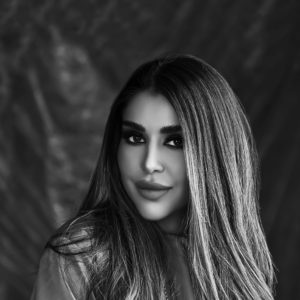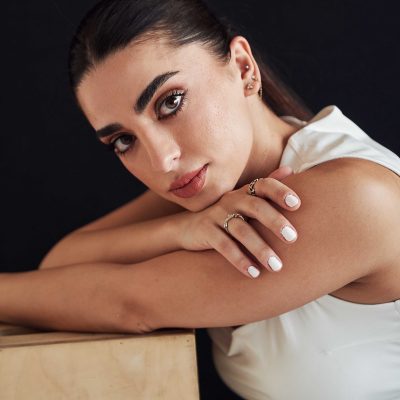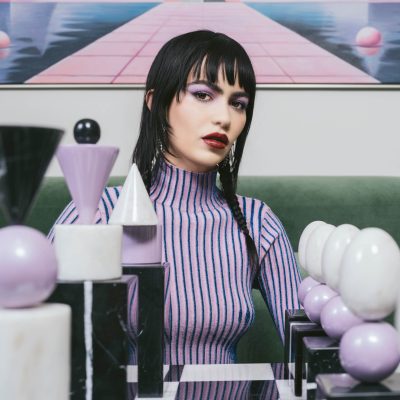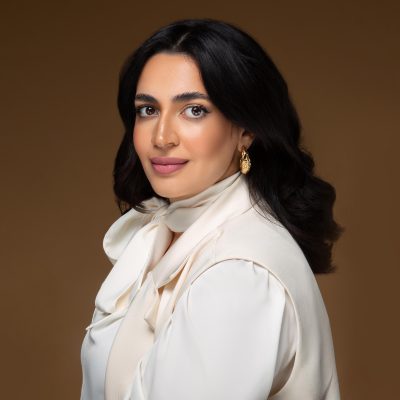COMPOSER / LYRICIST / PERFORMER
Harmonizing Cultures: Talal Kontar’s Musical Journey from War-Torn Lebanon to Global Fusion.
CP Magazine is delighted to present an engaging conversation between the talented artist Talal Kontar and our esteemed interviewer, Fatima AlJutaili. A Lebanese Spanish composer, songwriter, and singer, Talal’s musical journey began in the midst of war-torn Lebanon. Evolving from composing patriotic songs at just fifteen to becoming a prominent composer and lyricist, he later embarked on a transformative path. In this interview, Talking with Fatima AlJutaili, Talal shares his story behind the creation of the captivating musical brand, Libanista, a fusion of Lebanese oldies and occidental beats. With over a decade of success, Talal reflects on his musical inspirations, challenges, and the profound impact of pursuing his passion. Discover the essence of Talal’s artistic philosophy, insights on the music industry, and his visionary projects that await the world.
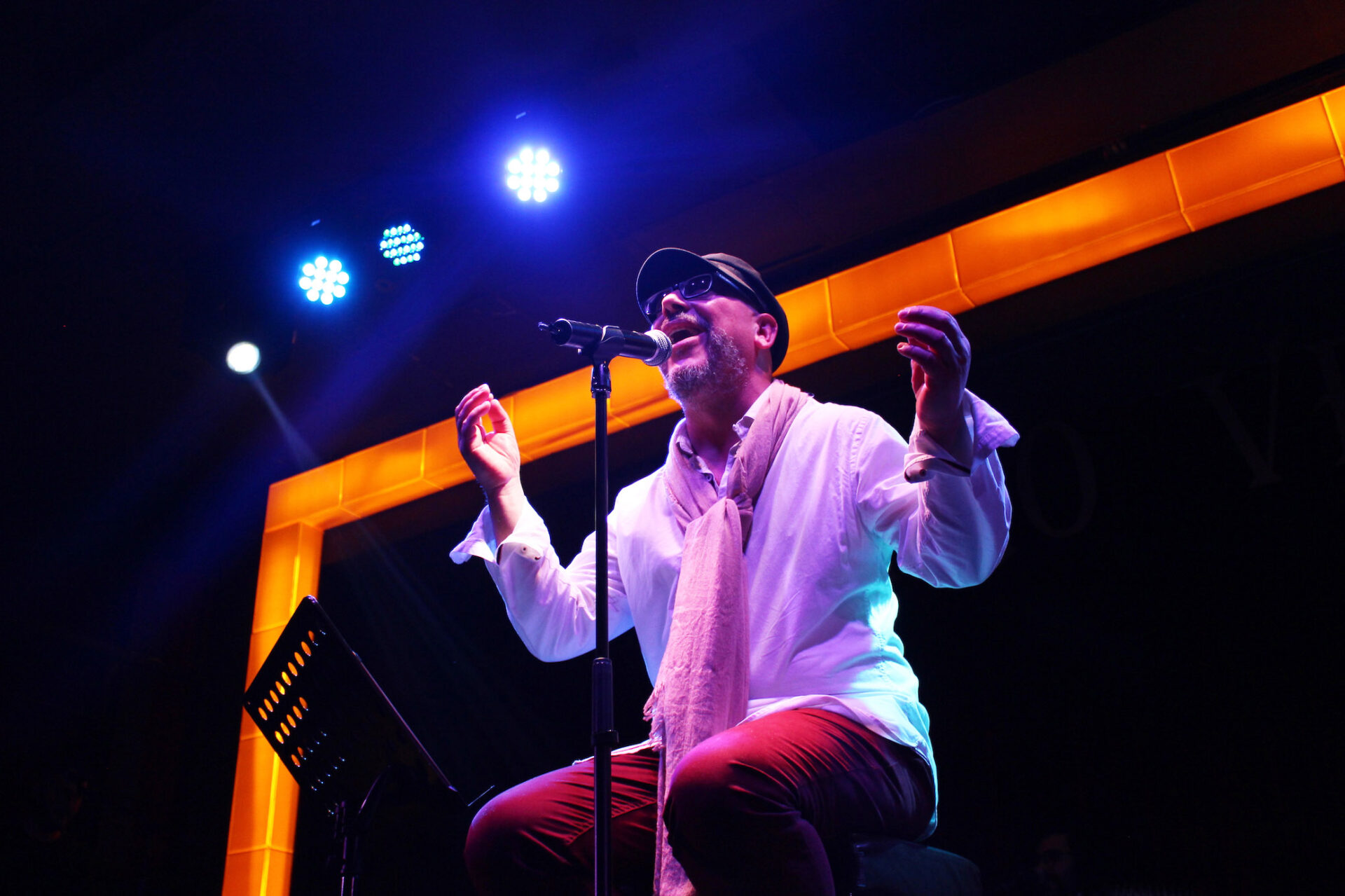
Please introduce yourself to our readers.
My name is Talal Kontar, I am a Lebanese Spanish composer, songwriter, and singer. I’ve always loved music. As a child, I listened to all kinds of music, oriental naturally and occidental unexpectedly and I believe that the blend made me who I am now. I wrote love poems as a teenager and composed patriotic songs at the age of fifteen when Lebanon was in a state of war.
I left Beirut for Barcelona at the age of nineteen without any thought of becoming an artist. I spent ten years in the city I grew to love and studied the Spanish language, fashion design and business marketing.
Fast forward to 2003, I made my first hit song with Fadl Shaker and officially started my career as a composer and lyricist by making a series of songs that are still sang until today.
In 2013, I made my first big step towards performing in Dubai and Libanista band was born.
Music means so much to me and I am fortunate that I was able to turn the passion I have for it into a living.
Tell us your story behind Libanista? How did you come up with the brand name/ idea?
When I moved to Dubai, I was working in something that didn’t make me happy. I struggled to find the balance between what I like to do and what kept me financially stable. Until I asked myself a question that changed everything: “when was I ever happy and making enough money?”, and the answer immediately came to me: when I was in Barcelona, I used to occasionally sing in a venue, and this is when I was happy doing something that I love and making enough money. So, I took one of the most important and challenging decisions ever: I want to create a band, a concept that looks like me and sing. So, I started contacting musicians in Dubai and one week later, Libanista was born, and we are still together and operating after 10 years.

I picked the name Libanista because I wanted it to summarize the experience and what we do: Libanista is a Lebanese oldies live show with a twist of occidental beats, a fusion. The noun that ends with “ista” in Spanish refers to a job or someone supporting an idea. So, we are the “libanistas”.
Who helped you most in your journey?
Every person I met and every situation I have been through helped me in my journey. I believe that there are no coincidences or luck, I am the artist that I am today because of that person I met and inspired me to write a song or that situation I have been through that created a melody through me.
What or who is your main inspiration?
As a songwriter, I can be inspired by anything around me that I pay attention to. The universe if full of inspiring things, we just need to pay attention to them.
As long as I am “in-spirit” I can get my inspiration from any event that occurs around me, and surprisingly sometimes I make a song and don’t even know what inspired me to do it because nothing happened in my life that goes a bit with it, with time, I get the answer, something happens, and I relate it to it magically.
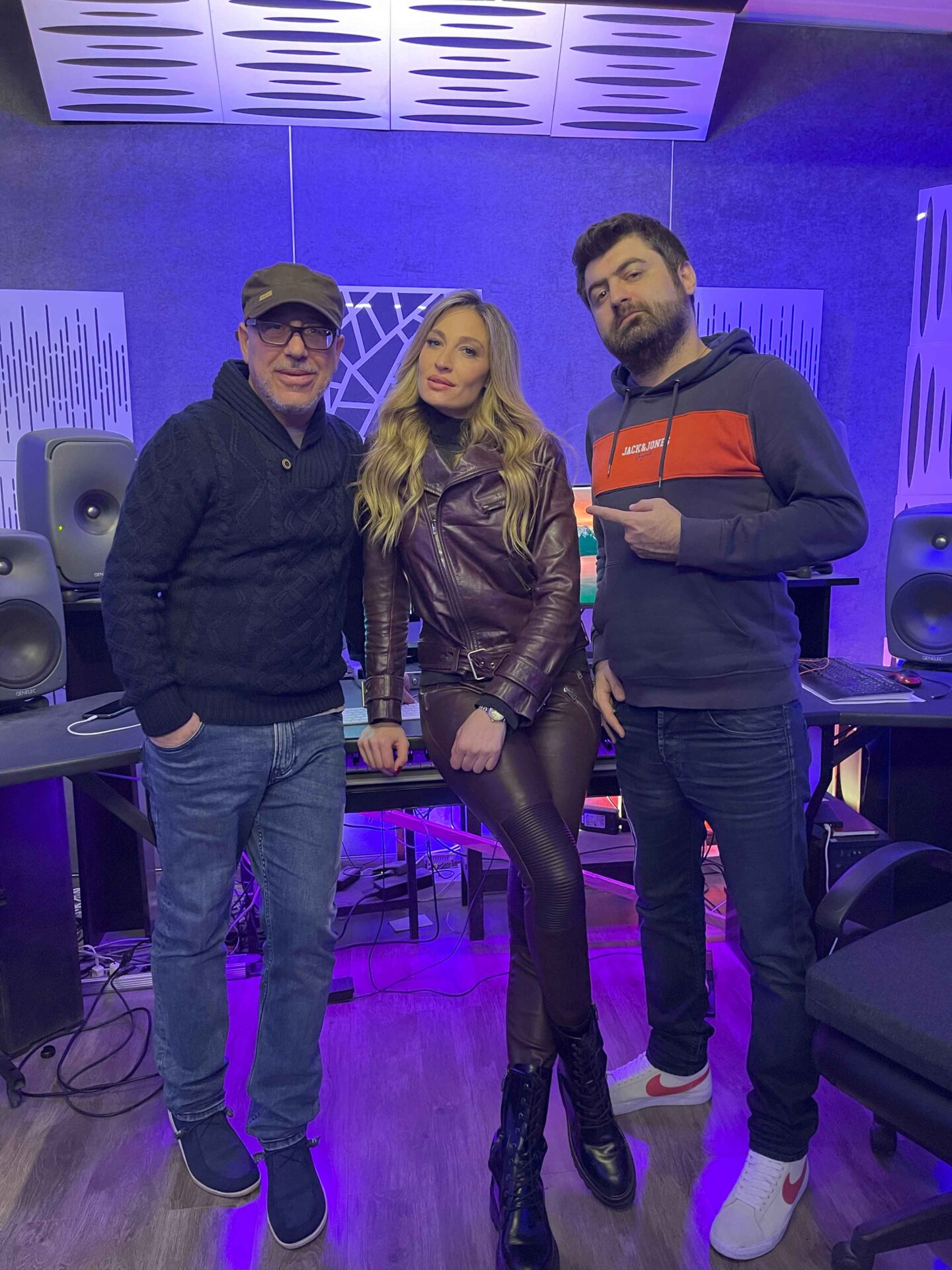
The songwriter must be tuned to the cosmos. There is an energy field that contains all human experiences; thus, the artist must be connected to it to get the lyrics and melodies. It is not that we are the creators but instead the instruments through which the cosmos manifests itself.
Which famous musician have you learned from?
In my teenage years as I have mentioned in my introduction, Lebanon was in a state of unfortunate war and the music scene was oriented towards patriotic or politic songs. The music pioneers of that time were Marcel Khalife and Ziad Rahbani and I was very touched by their music.
Who is your idol in the music industry?
No one and all of them. I admire many artists in their uniqueness. Admiring without idolizing it because I never felt that I wanted to be like any famous artist because each one of them plays a different part in contributing to the beauty of music in their own way. I remember in my early age listening to Disco music from the Bee Gees, Boney M., and ABBA, I found it stunning, and I still do! Later, I was amazed by the performance of Freddie Mercury who was one of the best showmen that I believe ever existed. Of course, I must mention Georges Michael and Sting as well and many others honestly. I noticed that most of the artists I mentioned are songwriters as well, that’s a big part of their uniqueness I believe.
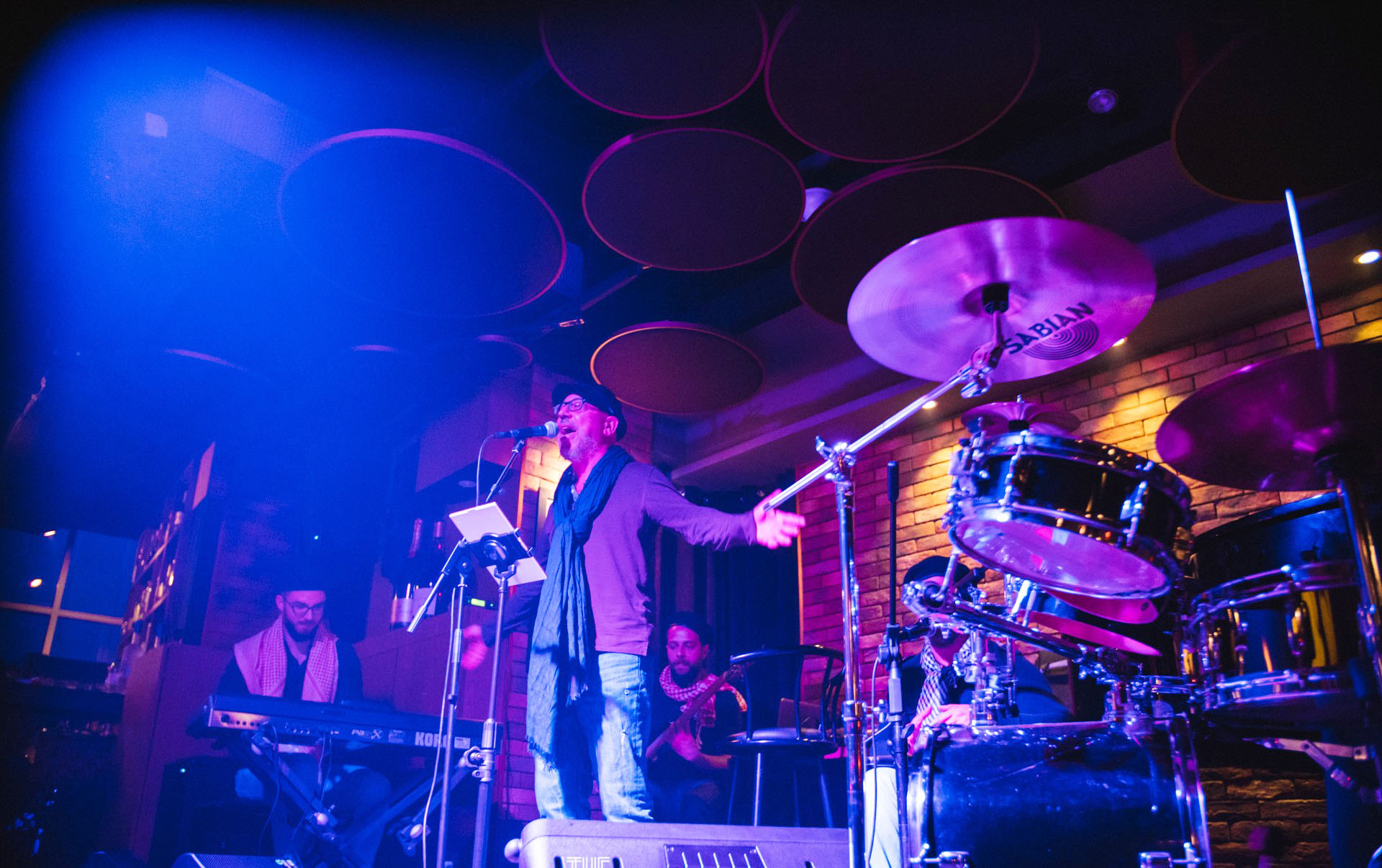
What was the first instrument which you learned to play?
I taught myself to play the Oud because it was accessible and not because I had a passion for it. It only accompanied my singing, and it turned out that I needn’t any instrument to translate my real passion which is songwriting. I can also play a bit of guitar and keyboard but only to share a melody that was created in me. In general, I do not consider myself a musician, I was not attracted to a certain instrument making me want to learn how to master it. I am a man of word and melody.
What is the most challenging style of music you’ve ever sung?
In Arabic it’s definitely “Tarab” because it needs certain skills and techniques and training that not everyone has. I am a performer and it’s different than being a singer in a way. The performer in general goes to lighter kinds of music in terms of techniques and more into a performance and I believe that nowadays the music industry is oriented towards the showbusiness and entertainment.
Another challenge for me was to sing in Spanish language because it is not my mother tongue. I lived in Spain for many years, speak Spanish fluently and Spanish music largely and Flamenco specifically had a big impact on me, so I tried to present it with an oriental twist to bring in forward to who I am.

What is the biggest highlight of your career?
The biggest highlight was the decision that I took to stop working at the family business and pursuing a career in music. It took me around two years of thinking and analyzing to be able to finally take that decision. It was the most challenging and difficult decision that I have ever had to take because it was perceived that the music industry does not bring financial stability, especially at the level where I was as a newcomer. But I believed in my talent and once I took the decision, opportunities came to me, and I started making songs for class A singers. The first one was Fadl Shaker with “Ya Habibi Taala” in 2003. I then composed songs for Ragheb Alama, Fares Karam and many others.
The highlight of my career as a performer was definitely Libanista. Experts in the entertainment business in Dubai back then, allies and competitors, predicted that the concept I was trying to introduce would last a couple of weeks only because the market wouldn’t relate to it. We are celebrating our 10 years anniversary in September 2023, same concept, and same band.
Would you agree that it is important to study or learn music history?
I don’t believe that it is a must. If an artist decides to go for it, it adds value to his or her general culture. If we go back to past years when music schools did not exist, music still exists, because talents existed.
Being a songwriter and a performer, I see that it is less important for me to study music and its history than a musician. Musicians usually have an added value in their field when they study musical notes and sound, rhythm, timing and duration of notes, accidentals, building of chords, intervals between notes, and dynamics.
However, too much diving into the theory can fade the spontaneity of the artist. When the creation comes from the heart and goes to the brain, it will filter it with the excessive theory and therefore might lose its spark.
What are your future projects?
As a songwriter, I am officially back to the market after a long break. In the past years I was focusing on Libanista and releasing personal original songs but now I am back to business. It started with an Iraqi band that I worked with 13 years ago called UTN1 with a song called “Helwa” and the beautiful Mirva Kadi who wonderfully sang “Hawa Beirut”, Issa Ghandour released “Enta w Ana” and other songs for new artists are in the making, to be released in 2023, early 2024.
I am also still working on personal original songs but in a different direction now. I am a very diverse songwriter, but I also have been known for my socially oriented original songs, but I believe that now is the time to go along with the evolution of music. I want to be able to reach the new generation who is very influenced by social media; songs are now shorter, entertaining, and incorporating international beats. So, this is a project I am currently working on.

Simultaneously, the big upcoming project of Libanista is to export the concept outside the UAE. Our purpose is to be able to tour throughout the world and introduce the fusion that we do to audiences in the U.S, Australia, Europe, and every place where an Arab expat community live.
If you could change one thing in music what would it be?
Music is like anything in this world, beautiful by creation. I Definitely can’t change anything in it, I can only change things in myself and evolve. Rumi said “Yesterday I was clever, so I wanted to change the world. Today I am wise, so I am changing myself”, the same applies here.
Regarding the music industry, I wish independent artists had more support. The most common barrier to music production nowadays is not having the budget to record a song or shoot a music video so we are missing out on amazing talents.
So, I cannot stress less on supporting independent artists!
What is your motto or some good advice that you live by?
“Nature never rushes, yet everything gets done.” It’s the same with artists. Trust in your journey, in your process, in your uniqueness. Do not sense that you must rush and don’t compare yourself to others. Take things one step at a time, give yourself the time and space you need to create the things you love, and trust that things will get done in their own time.
Always remain in a state of eternal gratitude. See everything that crosses your path from a perspective of gratitude. You are here for a reason; this is the key to feeling purposeful.
Some advice I would give to artists, especially independent artists like me, don’t create with the purpose of becoming famous or rich.

Allow me please to tell you this short anecdote: One day a powerful king called for the most talented painter in his kingdom and requested the most beautiful painting of all times, for him to display it in his palace. The painter completed it in 2 months and when he was asked why it took him that much time to paint it, he said: “I spent the first week convincing myself that I am not doing the painting to be famous. I spent the next week eliminating the fact that I am doing the painting to get well paid. Once I removed these 2 ideas from me, I was ready then to start creating this masterpiece.”
What would you like to say for CP magazine?
I want to thank CP magazine and Fatima for this interview and giving me the chance to introduce myself to your readers. I hope that I was able to help, inspire or just entertain them in a way.
I appreciate the hard work of magazines nowadays; it is very challenging to attract readers in the digital era where the audio and video content became king.
So, I salute you for your efforts and wish you all the luck.


